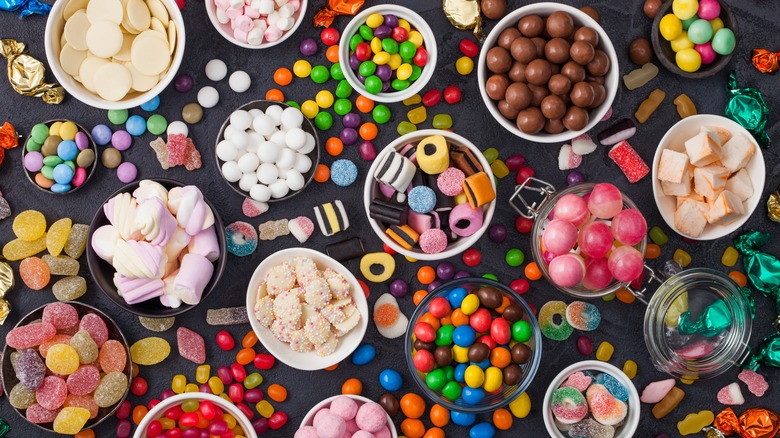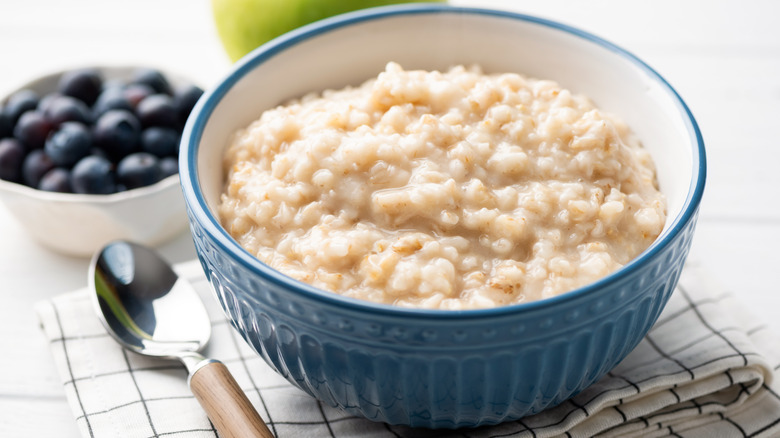Why You Shouldn't Eat Candy Before A Workout
Believe it or not, the food you choose to eat before a workout can play an important role in your energy levels. That's why it's important to eat an adequate amount of carbohydrates before hitting the gym. The type of carbohydrates you consume, however, is just as important as the amount (via Elite Daily). As it turns out, eating simple carbohydrates, or sugars, before a workout can actually be counterproductive and negatively impact your athletic performance.
That's because simple carbohydrates, like candy, can cause your blood sugar to drop. This can potentially lead to burnout and lethargy, making it difficult for you to complete your workout session. "If it's one or two hours before, I'd avoid high-glycemic carbs eaten alone," certified personal trainer Nate Miyaki told Men's Journal. "This can trigger rebound hypoglycemia in some [blood sugar spikes and crashes] which can lead to fatigue, lightheadedness/dizziness, energy crashes, and poor performance."
Stick to complex carbohydrates
However, that doesn't mean that you shouldn't eat any carbohydrates at all before you exercise. It just means that it's better to stick to complex carbohydrates, which mainly consist of fiber and starch.
According to Greatist, you should consume 3 to 5 grams of carbohydrates for every kilogram (roughly 2.2 pounds) of body weight if your workout is less than an hour long. This should increase to 5 to 7 grams, however, if your workout exceeds 60 minutes. For instance, if you weigh 130 pounds, you should eat the equivalent of two slices of bread, one and a half cups of whole wheat pasta, one cup of oatmeal, half a cup of dried fruit, and a granola bar throughout the course of the day.
The amount of carbohydrates you should consume right before a workout, however, should be considerably less. "The ideal way to prep is to have a meal of complex carbs three to four hours before you exercise—something like whole-grain toast with peanut butter and honey, or oatmeal with skim milk, almonds, and sliced banana," Melissa Majumdar, a registered dietitian and spokesperson for the Academy of Nutrition and Dietetics, told Greatist. "Whole grains stay with you, and the more complex the carb, the longer it will take your body to break it down."


